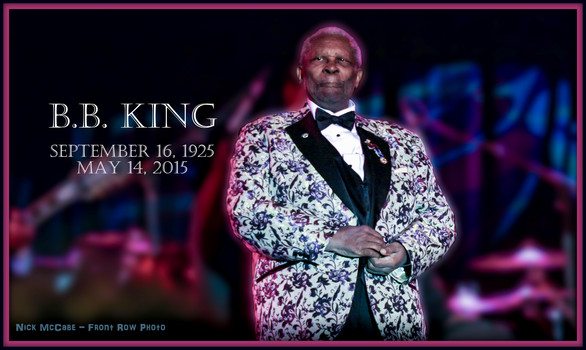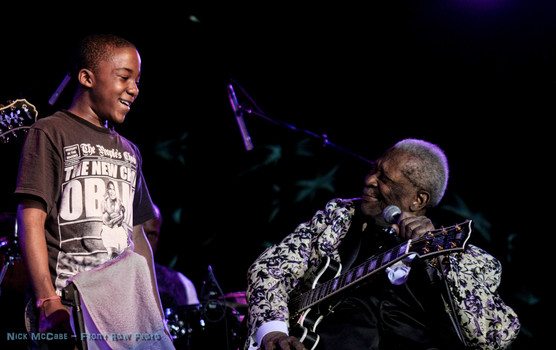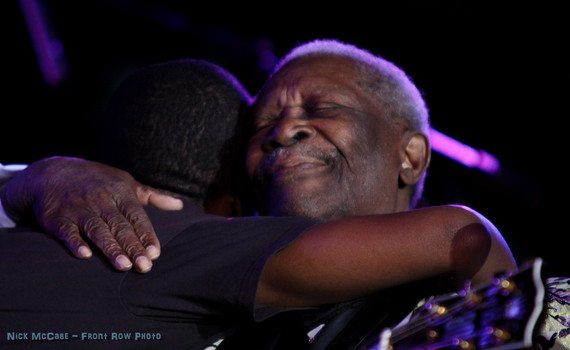 In the beginning God created the heavens and earth. Shortly after that, a cave man banged on a log. Then he had a couple buddies join him, and we had the first jam session. Fast forward a couple million years through a constant evolution of music where everything is built off of what came before, and you come to the birth of the blues. It happened in African-American communities in the Deep South of the United States around the end of the 19th century. And then came Riley B. King.
In the beginning God created the heavens and earth. Shortly after that, a cave man banged on a log. Then he had a couple buddies join him, and we had the first jam session. Fast forward a couple million years through a constant evolution of music where everything is built off of what came before, and you come to the birth of the blues. It happened in African-American communities in the Deep South of the United States around the end of the 19th century. And then came Riley B. King.
The evolution of music moved slowly until recording technology made it possible to hear music even though you weren’t in the presence of the performance (imagine that , iPod download generation). As the new industry of recording music began to grow in popularity in the early 1900’s, things started to grow exponentially. Anybody could hear anything, as long as they had access to recordings and record players, or just a radio.
King started recording professionally in 1949. Around that time, in the United States you had some kids — Elvis Presley, Carl Perkins, Jerry Lee Lewis, Bill Haley, Little Richard among others — who were artists in waiting, ripe for inspiration. The artists of the British Invasion were post World War II babies who were growing up at a time when these recordings, and other blues recordings were becoming available everywhere. British youngsters like Eric Clapton, Jimmy Page, Keith Richards, Mick Jagger, Jeff Beck, and many more who loved the blues and listened to these recordings took it to a new level along with their American counterparts, and it was called rock and roll (everything builds off of what comes before), and the influence of the coming generations was off and running.
I was been fortunate enough to have seen him in concert four times: twice a long time ago when I lived in Sacramento, (one of those times he was still standing up for shows), and twice here in Reno as a photojournalist. He always made a joke about after standing up for all those years, he had earned the right to sit down. A B.B. King show was always a classy affair, with tuxedos and a big band on stage. The last two times I saw him he had started telling more and more stories between songs. Some loved it, some wished he would play a little more. B.B. King has “paid it forward”’ for years with his performances and collaborations with others. The last time I saw him was at Reno’s Silver Legacy in February 2011. At that show he paid it forward in a unique and more one on one fashion. He singled out a young man in the audience and started talking to him, eventually bringing him up on stage for a personal exchange and a hug. Could you image what it would be like to have that happen to you? This would make for a wonderful first chapter if this young man grows up to be a performing musician.
When B.B. King died the musical world, and the world in general, lost a legend. He was a pioneer in his field. He blazed a trail and inspired countless others who have enriched our lives with their musical skills and creative genius. There’s no way to know what the musical landscape would be like if we never had B.B. King, other than to know that it would be less than it is today.
The King is dead, long live the King.




